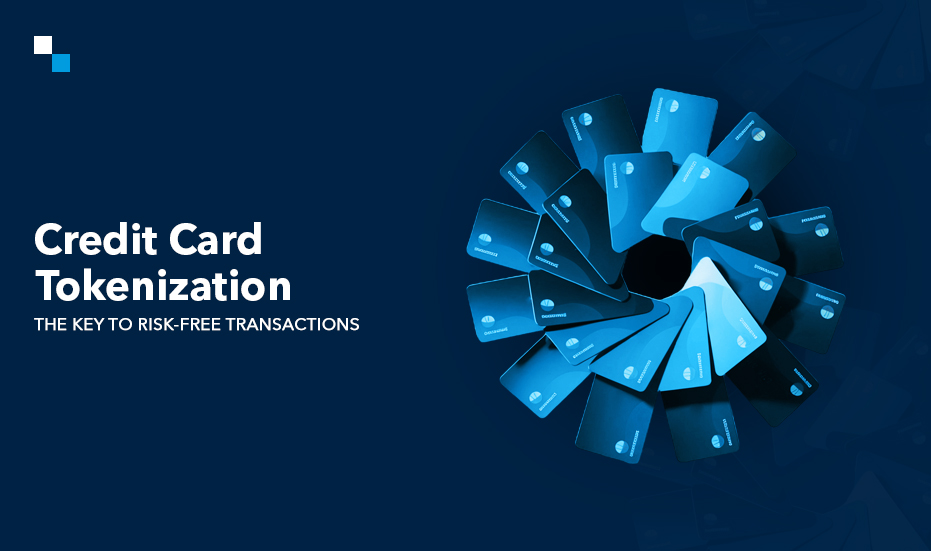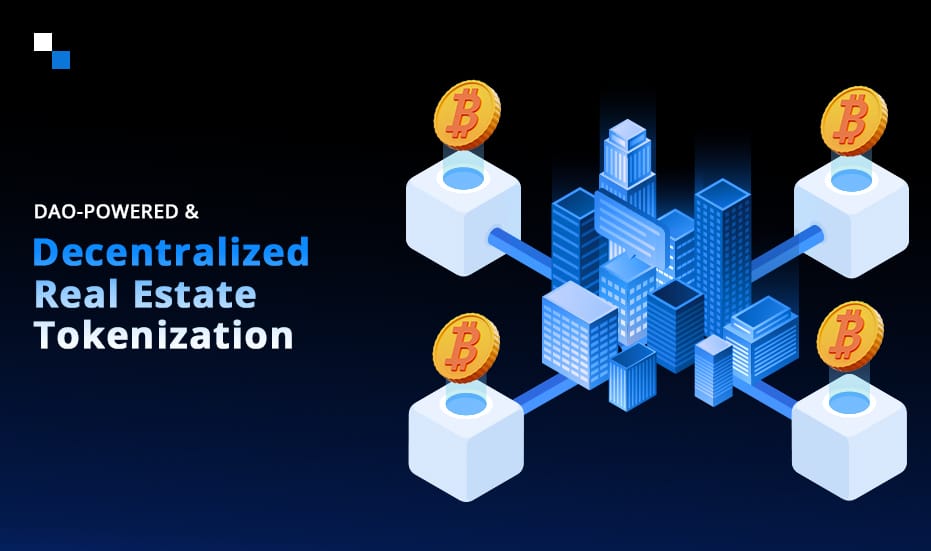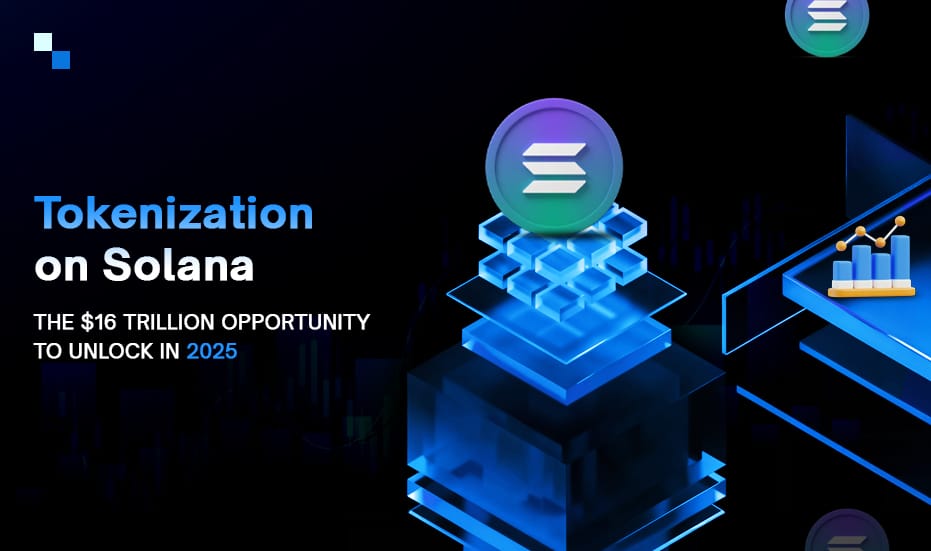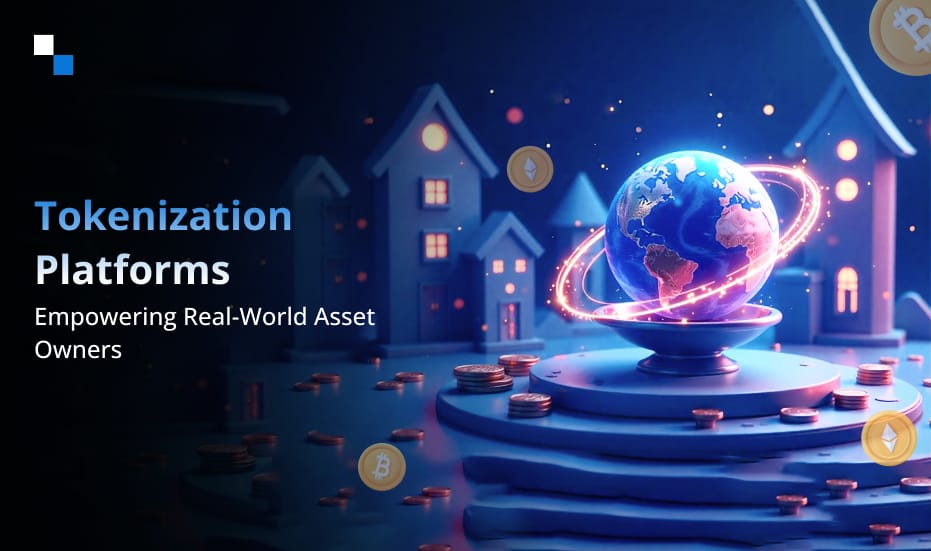
Tokenizing Real Estate with Smart Contracts: A New Era of Property Investment
November 25, 2024
Exploring the SUI Blockchain Network: A New Era of High-Performance Decentralization
November 25, 2024We live in a digital world, where online transactions are considered normal. However, ten years ago, such retail transaction was utilized in just 6% of all retail sales. In 2013, Mastercard, along with other players, launched the tokenization standard to better the security and foster greater confidence in digital transactions. In 2014, Mastercard launched the Mastercard Digital Enablement Service, now supporting the secure encryption of billions of transactions every year.
Many security risks accompany the facility of online transactions, so it becomes a need to protect credit card data so that no one can misuse sensitive information. Credit card tokenization is a smart way of reducing security risks while making online payments.
The Visa Tokenisation Report indicates that 76 percent of executives believe that tokenization will drive the adoption of contactless payments across various devices and expand into a wider range of merchant categories.
Let’s continue the discussion about how it works, what are the benefits, the necessary considerations for credit card tokenization development, and the real-world applications of card tokenization.
What is Credit Card Tokenization?
Credit card tokenization is the process of changing sensitive credit card data into a unique token; this affords business organizations enhanced security and fraud prevention. Businesses are focusing mainly on Visa tokenization and Mastercard tokenization, as these are the two most widely used credit cards in the world.
Here are the important facts you should be aware of before starting a discussion with a credit card tokenization service provider:
- Tokenization substitutes the actual credit card number with a randomly generated token, which is useless to hackers if intercepted.
- Tokenization replaces the actual credit card number and uses tokens while making transactions. This means that all chances of exposing customer payment details at the time of purchase will be reduced.
- This ensures that sensitive information remains safe since tokens are non-reversible and cannot be decoded back to credit card numbers.
- Tokenization also helps in data protection regulation compliance by limiting exposure to confidential information.
- Merchants can store a token for recurring payments without exposure to customer data, thus building trust and loyalty.
Overall, a credit card tokenization development company is responsible for creating a secure environment for both businesses and customers, mitigating the risks associated with cyber threats and identity theft.
How Does Credit Card Tokenization Work?
There are the following main stages in the card tokenization process:
- Initiation of Transaction: Whenever a customer makes a purchase, the credit card information is passed out during the checkout.
- Token Generation: The credit card information is sent to a credit card tokenization service, which generates a unique token associated with that specific transaction. It is then sent to the merchant.
- Transaction Processing: The merchant uses the token to process the payment without handling the actual credit card details. That token is transmitted to the payment processor who checks the original card information against the encrypted and stored version in the vault.
- Authorization: The payment processor communicates with the issuing bank for authorization using the token. Once approved, the transaction is completed, without exposing sensitive data.
- Secure Storage: The original credit card information is stored securely in a token vault, but the merchant alone keeps the token for further transactions.
This process ensures that even if data is intercepted during transmission, it remains useless to any potential attackers.
Payment Tokenization vs Encryption
Where both payment tokenization and encryption are used to protect sensitive data, they have different functions:
The input data is converted into an unreadable format; this is encryption. The original data can be recovered using decryption keys held by authorized parties. However, when the encryption keys fall, attackers gain access to sensitive information.
Tokenization involves replacing sensitive data with non-sensitive tokens that hold no intrinsic value outside of their specific context. Unlike encryption, the data that’s been tokenized cannot be reversed to its original form without the ability to access the secure storage where the mapping between tokens and actual data are kept.
In short, whereas encryption protects data in transit and at rest, tokenization reduces risk even further as it strips sensitive information off of systems.
The Benefits of Credit Card Tokenization
-
Security
Tokens replace sensitive card information, substantially reducing a business’s exposure to fraud and data breaches. Even if intercepted, tokens are worthless without access to the original information.
-
Compliance
Tokenization reduces businesses’ exposure to sensitive data, making it easier for them to comply with Payment Card Industry Data Security Standards (PCI DSS). Since few card details will be stored on the merchants’ systems, they are exposed to lower compliance burdens. It’s a main benefit of PCI compliance credit card tokenization.
-
Reduced Fraud Risk
Tokenization reduces fraud risks associated with stolen credit card information. Because tokens are unique, and cannot be recycled in different merchants, fraudsters face it as a hard challenge to exploit the stolen data.
-
Faster Transactions
Tokenized transactions can be processed faster and more efficiently, improving customer experience and reducing cart abandonment rates during online purchases.
-
Facilitated Recurring Payments
For business providers of subscription services or recurring billing, it guarantees the storage of customers’ payment details securely without compromising security.
Steps for Tokenizing Your Credit Card
Implementing credit card tokenization involves several steps:
- Choose a Tokenization Provider: Select a reputable credit card tokenization development company that offers a comprehensive credit card tokenization service tailored to your business needs.
- Integrate Tokenization Solutions: Co-coordinate with your provider to integrate its tokenization solution into your infrastructure and payment processing environment in a seamless manner.
- Register for Tokenization Services: Use the payment platform to register customers’ credit cards for tokenization via the checkout or application.
- Token Generation and Storage: Once registered, your provider will generate tokens for each transaction and securely store original credit card details in a vault.
- Transaction Processing Using Tokens: During future transactions, use tokens instead of actual credit card details for processing payments securely.
- Monitor and Maintain Security Protocols: The security protocols should be reviewed periodically to update security measures.

Real-World Applications of Credit Card Tokenization
Credit card tokenization has found applications across various industries:
- E-commerce Platforms: Online retailers utilize tokenization to protect customer payment information during checkout processes, enhancing trust and reducing cart abandonment rates.
- Mobile Payments: Mobile wallets like Apple Pay and Google Pay leverage tokenization to secure transactions made through smartphones, ensuring user data remains protected even if devices are lost or stolen.
- In-store payments: Contactless payment or POS that retailers can use for secure transactions, without having to expose customers’ sensitive credit card information at checkout.
- Subscription services: Securely store information about the customers’ payment in tokens and thus make future transactions more accessible while maintaining security.
Credit Card Tokenization Challenges & Solutions
While credit card tokenization offers many advantages, it is not devoid of challenges that must be acknowledged:
1. Implementation Complexity
The inclusion of a new system in an existing infrastructure is complex and may require substantial resources and time.
Solution: Engage with providers who offer thorough support throughout the process.
2. Consumer Awareness
Educating customers on how their data will be protected with tokenization is key to establishing trust for novel means of payment.
Solution: Clearly, communicate the process and advantages of tokenization via marketing materials and in customer support.
3. Regulatory Compliance
Businesses must stay abreast of changing regulatory requirements on data protection and must ensure that their process of tokenization is always well within compliance with regulatory standards.
Solution: Engage with a credit card tokenization service provider who is well abreast of regulatory compliance and could help ensure this during implementation.
4. Security Risks
Though credit card tokenization development has more benefits on the security front, any fault in its implementation might lead to various exploits.
Solution. Conduct regular audits of your security measures and work with providers that give topmost priority to strong security protocols in their solutions.
Conclusion
With the increasing dominance of digital payments, credit card tokenization provides a vital solution for protecting sensitive financial information and ensuring zero-risk transactions. This involves replacing actual card details with secure tokens, providing businesses with various opportunities to reduce fraud risks, simplify PCI DSS compliance, and even build trust with customers. Despite implementation challenges, the benefits of tokenization outweigh the complexity and therefore remain an important tool in modern payment ecosystems.
At Antier, we specialize in delivering the finest cutting-edge credit card tokenization development service customized to specific business needs. We help businesses seamlessly integrate payments through tokenization into their systems, providing a secure, scalable, and compliant payment solution that safeguards businesses and their customers.
Become future-ready. Contact us for tokenization solutions today!




